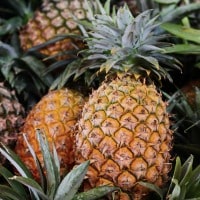Scientists working to find new ways to treat antibiotic-resistant superbugs have discovered a possibility in the stems and roots of pineapples. A group of three enzymes known as bromelain were initially discovered in the 1930s, but the uncovering of their antibiotic qualities happened only a few decades ago, with Australian scientists now using the enzymes to cure diarrhea in piglets. According to Rob Pike, a biochemist from LaTrobe University located in Melbourne, Australia, since pigs and humans are anatomically and physiologically similar in several ways, the enzyme has the potential to provide an alternative treatment for people. While antibiotics target bacteria, bromelain works with the cells in the gut by making it difficult for the bacteria to stick to the cells. The chance of the bacteria evolving and becoming resistant is also limited by the three enzymes targeting gut cells. Scientists hope this will be the case in humans, so diarrhea will not occur.
It is crucial to find alternative treatments for superbugs, because they are predicted to kill about 10 million people a year by 2050; more than the number of people killed by cancer. Scientists hope the new enzymes from pineapple can be used as another weapon to fight bacteria, as many antibiotics do not work as well as they used to. “The momentum to develop alternatives to antibiotics is there now because people believe antibiotics are on the way out and we need something to replace them.”
Professor Pike and his colleague Lakshmi Wijeyewickrema is presently developing the alternative treatment to antibiotics along with Anatara Life Science, which also conducted the animal trials.




